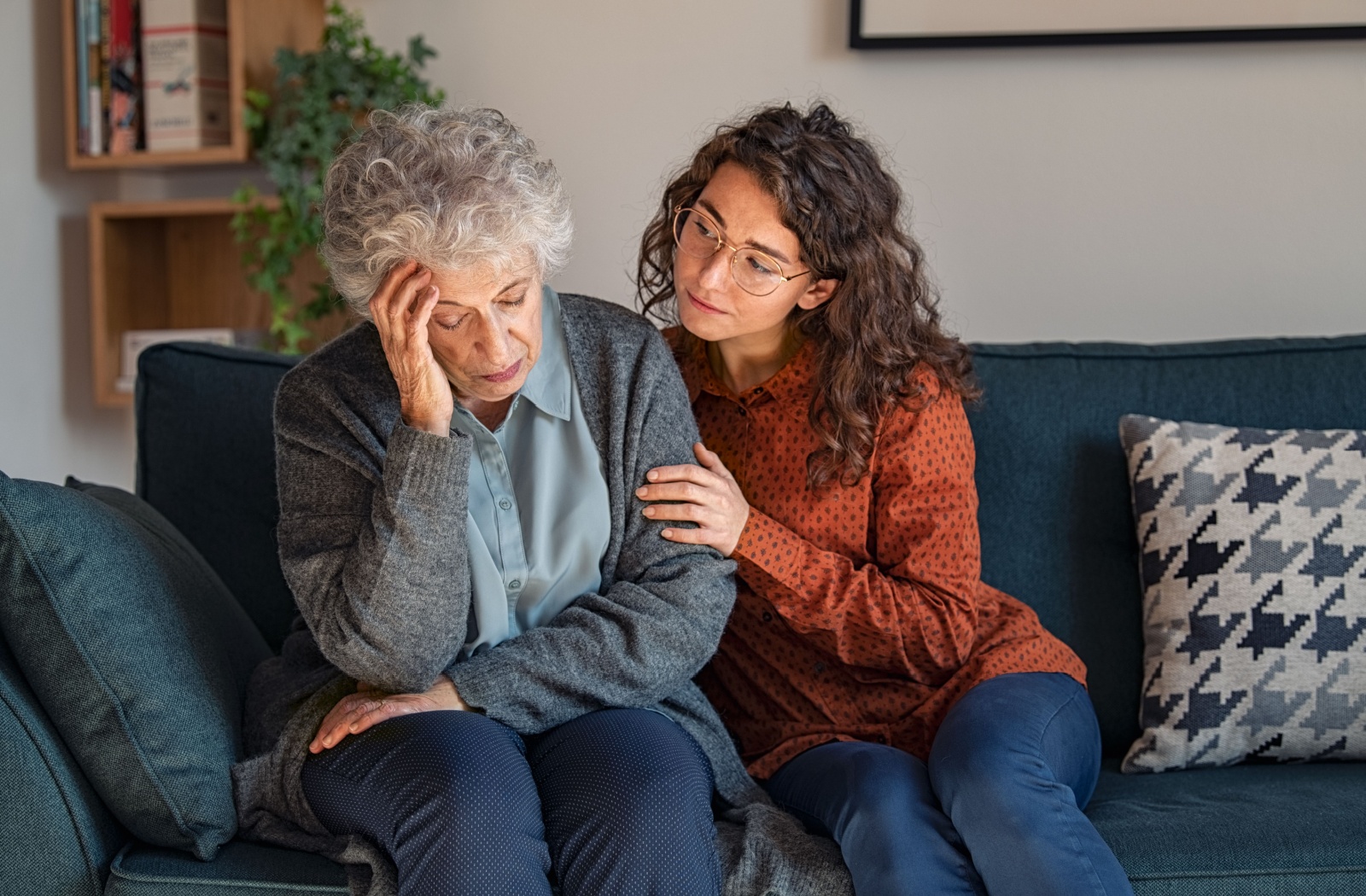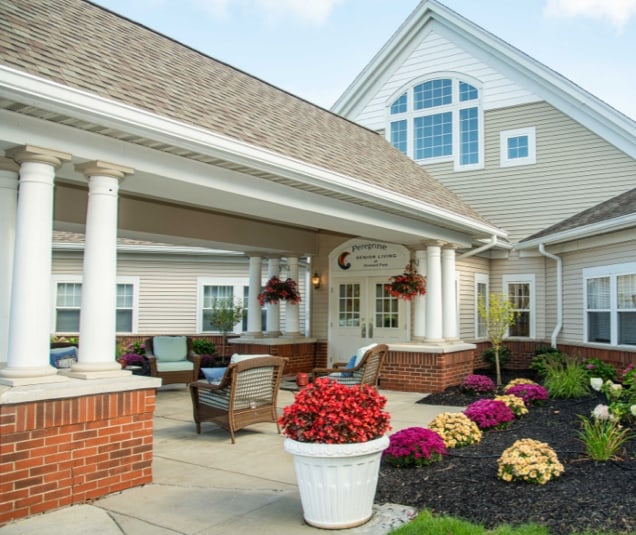When it comes to caring for a loved one with cognitive decline, timing can make all the difference. Memory care stands out as an option for families looking for support that helps aging loved ones preserve their dignity and sense of self during this challenging time.
However, when is the perfect time to move? Should you wait for symptoms to start?
Moving to a memory care community earlier often leads to better health outcomes. It’s a chance to intervene sooner, so you aren’t pressured to act later when urgent concerns arise.
The earlier your loved one gains access to professional support, the more likely they are to retain cognitive abilities and memory.
How Does Memory Care Work?
Memory care is a specialized type of care. Unlike other lifestyles tailored towards independence, memory care is about helping older adults manage cognitive decline and memory loss. The focus is on creating a safe, structured home to help residents every day.
In memory care, team members undergo specialized training to navigate changes in behavior, confusion, and communication. Caregivers can recognize when a person is facing a challenge, then step in to help them effectively manage any problems.
It’s a chance to help your loved one preserve dignity in their daily life and give them valuable coping tools.
Meanwhile, the community offers structured routines to make life more predictable. From morning hygiene to shared meals and relaxing activities, each part of the day supports a person’s overall well-being.
Activities often include music therapy, light physical movement, and art projects. Together, these all create a safer, more supportive environment for your loved one.
When Should a Person Move to Memory Care?
Knowing the right time to explore memory care options can be difficult. But there are several clear signs that a loved one may benefit from a memory care community sooner rather than later.
Increased Safety Risks at Home
Frequent wandering, leaving doors open, or using kitchen appliances unsafely can create hazards. These are often signs that your loved one needs a more secure and supervised setting.
You may also notice falls, minor injuries, or accidents that go unmentioned. These risks can quickly add up, especially if your loved one lives alone.
Noticeable Changes in Behavior or Mood
If your loved one becomes suddenly irritable, anxious, fearful, or withdrawn, it might be more than a bad day. Shifts in behavior often reflect deeper cognitive changes.
Paranoia, confusion, or lashing out can also be indicators. These changes don’t mean your loved one is unsafe, but they do mean it’s time for a change.
Decline in Personal Hygiene & Daily Tasks
Forgetting to shower, skipping meals, or taking medication incorrectly are common signs of cognitive decline. These may begin as small slips but can become more serious over time. If chores go undone, unclean clothes are worn repeatedly, or bills go unpaid, don’t ignore it.
Caregiver Stress & Burnout
If you or another family member is feeling overwhelmed, it’s important to take that seriously. Caregiving is an act of love, but it’s also physically and emotionally demanding. Without professional support, caregiver burnout becomes a real risk—for you and your loved one.
Fortunately, memory care can provide necessary relief through effective support. If any of these sound familiar, it’s time to think about memory care.
The Benefits of an Early Move to Memory Care
Starting memory care early offers key advantages for both residents and their families. By stepping in sooner rather than later, you can preserve your loved one’s quality of life.
It also means you act from a place of reflection and informed choice, rather than responding urgently to a sudden change.

Slower Cognitive Decline
Early access to cognitive engagement and daily structure can help slow the pace of memory loss.
Activities such as art, puzzles, music, and group projects are a part of everyday life. These create a new sense of rhythm, and that’s excellent for reducing anxiety while promoting confidence. It helps your loved one stay engaged and mentally active.
Reduced Risk of Crisis Situations
When someone lives alone or with limited support, it’s easier for small issues to become big emergencies. Missed medications, falls, or confusion during the night can lead to hospital visits or injuries.
Early intervention gives your loved one the tools and environment to stay stable. That’s key to giving you all peace of mind.
Better Quality of Life for Everyone
With the proper support, your loved one can enjoy more independence, more comfort, and more meaningful social connections. At the same time, families feel less stressed and more supported.
You’ll be able to visit as a daughter, son, or friend—not just a caregiver. That shift can be emotionally healing for everyone involved.
Find the Right Memory Care Community Today
Thinking about memory care can be overwhelming, but starting the conversation early can make a real difference. Early support often leads to healthier outcomes—physically, emotionally, and socially—for your loved one.
You’re not alone, and our team at Peregrine Senior Living at Orchard Park can help. Here in our community, we can welcome your loved one to their new life. Schedule a tour with us today to learn more!












Drumming sessions led by Ken are invariably a success. Great way to start our Monday morning effectively. ... See MoreSee Less
1 CommentsComment on Facebook
March has arrived, hopefully bringing warmer weather. ... See MoreSee Less
0 CommentsComment on Facebook
I was honored to celebrate the achievements of an outstanding resident today; gratitude is expressed to Barb's family and friends for making it a memorable celebration. Thanks to Gary for his special contribution  ... See MoreSee Less
1 CommentsComment on Facebook
Dining at our community is about more than what’s on the plate—it’s about connection, community, and the joy of gathering together.
Our talented culinary team crafts meals that are both delicious and nutritious, offering flavors that comfort and inspire.
From themed dinners to chef demonstrations, each meal becomes an opportunity to savor the moment and celebrate life’s simple pleasures. 🍴
peregrineorchardpark.com/ ... See MoreSee Less
1 CommentsComment on Facebook
Easter Egg Hunt at Peregrine Orchard ParkMar 28, 11:30am101 Sterling Drive, Orchard Park, NY, United States, New York 14127Join us for an Easter Egg Hunt at Peregrine Orchard Park! March 28th at 11:30am, the Easter Bunny will be stopping by for an egg hunt! The hunt will be outside, rain or shine, so bring your boots, coats, and baskets! All are welcome to come! For questions, call 716-675-1022 and ask for Allison or Liz!
... See MoreSee Less
0 CommentsComment on Facebook
Today, we celebrated one of our colleagues who successfully passed her nursing board exams and earned her RN designation; we are extremely pleased to see what her future endeavors will bring. ... See MoreSee Less
14 CommentsComment on Facebook
Today we celebrate the caregivers—those whose quiet strength and unwavering compassion bring comfort to so many.
We see the difference caregivers make every day: holding a hand, sharing a smile, or offering reassurance when it’s needed most. 💕
Your dedication reminds us that true care goes beyond tasks—it’s an act of love, patience, and humanity.
Thank you for all you do to make the world a more compassionate place.
peregrineorchardpark.com/ ... See MoreSee Less
1 CommentsComment on Facebook